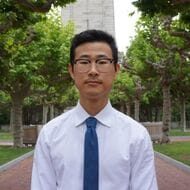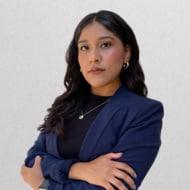
Teacher, Dreamer, American
I’ll live in fear of arrest if DACA ends. But I’m not a criminal. I am a pre-school teacher.
I did what all children do. I followed my parents.
I came to the United States on May 4, 2001—10 days before my 8th birthday—in a black Jeep in the middle of the night driving down the Canadian border. My parents must have been scared, but my mom reassured me that it was going to be all right, and that was enough for me. Although I’m not religious, I believe the gods were watching us that night, making sure that we got to our destination safely. My parents deserved that much. I did not get to celebrate my birthday, but that was the very least of my problems. That night I became a child defined by the lack of a Social Security card, an undocumented immigrant. Some people call me a criminal. I call myself an American. Maybe not on paper, but in my heart and my mind, I am 100 percent American. I aced U.S. history. I was the valedictorian of my high school class. I was voted student body president by my peers. I am forever thankful to the teachers and leaders who validated my humanity. Gov. Jerry Brown signed the California Dream Act that gave undocumented students like me access to in-state college tuition, allowing me to graduate from the University of California, Berkeley. I have always worked legally and paid taxes, thanks to President Barack Obama's Deferred Action for Childhood Arrivals (DACA) program.

The Trump administration announced the end of DACA last September, giving lawmakers until today (March 5) to enact a permanent solution. In the meantime, a federal lawsuit brought by Dreamers like me prompted a federal court to order the Department of Homeland Security to continue accepting DACA applicants. Attorney General Jeff Sessions is appealing the court ruling, and it’s unclear whether the high courts or our lawmakers will agree on a solution—and end this legal limbo—anytime soon.
My parents came here with nothing. Today, this once-undocumented child from a one-bedroom apartment in Los Angeles’ Koreatown, is a proud Head Start teacher in the West Side of Chicago. In a sense, I am living the American Dream. Yet, my life could become a nightmare if DACA ends without a legislative solution like the Dream Act in place. I will lose my job and my protection from deportation.
I live in fear of arrest. But I’m not a criminal. I am a pre-school teacher. From 7:30 a.m. to 4:30 p.m. every weekday, I lead 19 students in learning, playtime, and dance parties. I serve breakfast, lunch, and snacks. These kids see me more than they see anyone else. To quote a student, I am a “ginormous” part of their lives, and they are a ginormous part of mine.
If DACA were to be revoked or my status ignored in a deportation order, I would disappear from the classroom, their first teacher. My classroom is in a high-poverty neighborhood, a community familiar with family separations and abandonment, and I cannot leave them like that—for a reason I cannot explain, a reason they would not understand, a reason that is not valid.
Undocumented people are rooted in American society. They are our farmers, our teachers, our lawyers, our researchers, our bus drivers. My mom carried hot, heavy stone pots as a waitress for many years. I did not know she was so strong until I challenged her to an arm wrestling match when I was about 12. I thought I would win easily. After all, I had just started playing basketball with the boys, and my strength and my endurance were increasing. She beat me handily.
Her strength is a testament to her work ethic, the resilience of immigrants. My choice to become a teacher shows my belief in education as a tool for upward social mobility. I am lucky enough to call myself living proof. But I also became a teacher to foster a sense of curiosity and understanding in my kids. I want them to see the beauty in our differences and the connections among cultures. This is what I believe to be inherently American. This is what brings us together.
Regardless of documents, I am an American. I just live with the fear that the only life I have ever known will be ripped away from me. Congress could put this fear to rest with the Dream Act. I am in all ways American, and I deserve the opportunity to earn a pathway to citizenship.
Eric Kwak is a Head Start teacher and 2016 Teach For America corps member at Mary Crane School in the West Garfield Park neighborhood of Chicago.
Sign up to receive articles like this in your inbox!
Thanks for signing up!
Content is loading...








